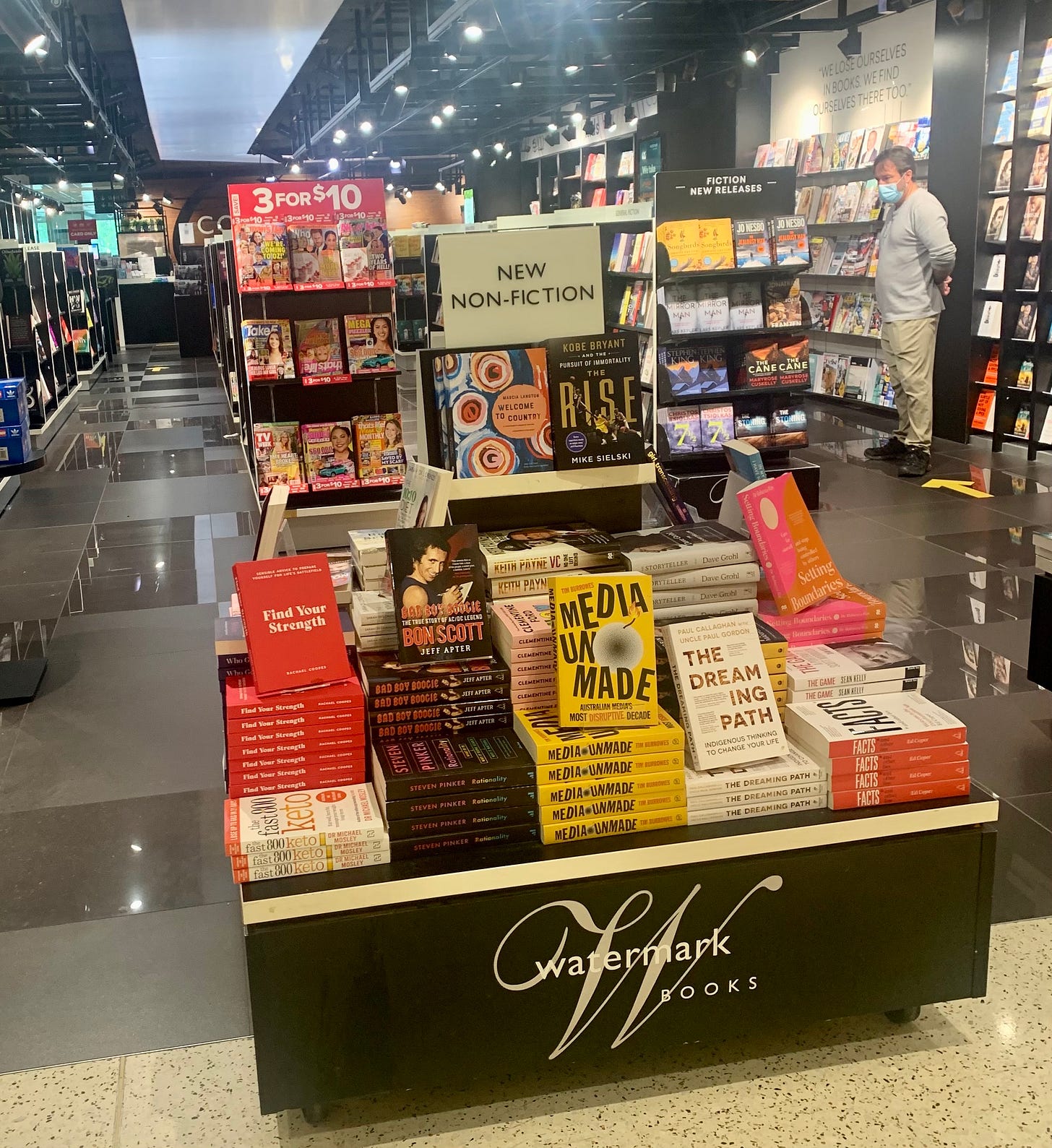Government backs away from war on ABC in election year; CHEP reboots; Paul Henry - Breakfast was Ten's poison chalice
Aunty's funding will be unfrozen - for now. It's all about the politics. Plus CHEP moves on, and Paul Henry on why Breakfast never stood a chance
Welcome to Unmade, mostly written in the departure lounge at Sydney Airport, and completed this morning as the sun was coming up at beautiful Sisters Beach, Tasmania. It’s good to be back.
On the way though, it was a big nerdy thrill to finally see my book on display in the airport bookshop, seven months since publication.
Happy National Cut the Cord Day…

